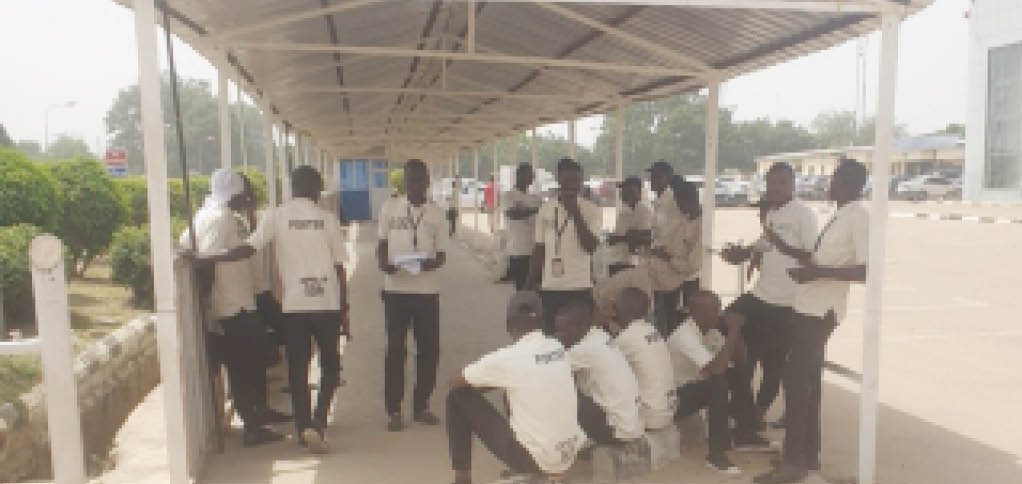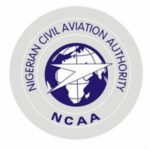Kano’s status as not only northern Nigeria’s commercial centre but West Africa’s commercial route could probably not have been as pronounced as it once was without the goodwill of having the first international airport in the country. But this airport, which was the pride of not only Kano but of northern Nigeria in not so distant years ago has become a shadow of itself in recent times. With reduced traffic comes the death of other activities the airport was once renowned for. Daily Trust on Sunday reports.
Mallam Aminu Kano International Airport (MAKIA) in Kano State was once considered as one of the best landing and flying environment in the country, but these days, the airport, sitting in the heart of northern Nigeria’s commercial centre, is only regaling in past glories, Daily Trust on Sunday reports.
FG suspends plan to terminate Amnesty Programme for N/Delta ex-militants
2023: Buhari unveils 385-member APC Campaign Council in Nasarawa
Established in 1922, the airport, which is the oldest in Nigeria started operations in 1936. It was known to be booming and providing employment opportunities, as well as making the state grow and woo international investors due to its strategic location in the country.
This is aside from the chances provided to thousands of people engaging in menial jobs within the airport to earn a living. It also gave Kano the sobriquet ‘Centre of Commerce’ in not only Nigeria, but the entire West Africa, thereby easing trade relations.
It used to be the airport of destination for those travelling abroad for businesses, medical trips, and tourism and/or for visit to Saudi Arabia for pilgrimage by the Muslim faithful. Also, in the first decades of operation, it became an important fuel stop for airlines flying long-haul services between Europe and Africa.
However, with all the reputation and contributions it has made to the country, activities in the airport have been on the decline over the years with the emergence of Murtala Muhammed International Airport in Lagos and Nnamdi Azikwe International Airport in Abuja. The activities that used to generate huge amounts of revenue to the country and the state kept declining while businesses running within the airport community also continued to collapse. The number of flights it used to attract has reduced drastically to less than 10 per cent, Daily Trust on Sunday gathered.
During a recent tour of the airport, activities were at the lowest ebb with no sign of domestic or international flights within several hours spent in the facility. Despite the newly constructed international wing by the federal government, the environment was almost empty with only few staff moving around, while few people were sighted waiting for either a flight or other engagements.
Muhktar Abdulmumini Nagado, who has been operating within the airport for over two decades, said the airport is no longer what it used to be as things have fallen apart for them.
He said the deteriorating state of activities in the airport started in 1999.
According to Nagado, who operates as a taxi driver, before the situation deteriorated, they used to operate a minimum of five rounds of taxi services on a daily basis, with some even waiting for them to come back, but now they can spend three days on the queue.
He said in those days, over 1,500 people could land in the airport every day both from the international and domestic wings.
“It is very rare for us to get even one passenger every day now. We only get that when something big is happening in Kano, like when there is a seminar, political gathering and so on,” he said.
He said in the past, the airport used to have 15 to 20 international flights, alongside about 30 domestic flights in a day but now, “We hardly get one international in a day and sometimes zero flight. For domestic, it is also like that, we hardly get 2 to 3 and sometimes we may not have.”
Also speaking on how the situation got to its worst level, a staff at the airport who chose not to be named, told Daily Trust on Sunday that the introduction of some policies by the past administration and diversion of some international flights to other parts of the country contributed to the worsening situation of the Kano airport.
According to him, when the airport was at its peak, “We used to have 10 to 20 international flights per day, while we also had 20 to 30 domestic flights. And this is exclusive of cargo which is not scheduled. So, you can see the serious drop in the flights because now, we barely have 3 international flights per day and 6 domestic flights.”
He added that during the glory days of the airport, over 15 international airlines were operating in the airport, some of which include British Airways, KLM, Traco, Turkish Air, Lufthansa, Air France, Afrikea Airline, Saudi Airline, Sudan Airline, Emirate Airline, Qatar Airline, Ethiopian Air among many others, and that there were Kabo Air and some few indigenous airlines operating internationally from the Kano Airport.
“But unfortunately, now we have only four international airlines operating through Kano and not on a daily basis. We have only Qatar Air, Egypt Air, Badr Air and Ethiopia Air. For the domestic airlines, we have only four that are frequent. We have Azman Air, Max Air and Air Peace,” he explained.
Airport businesses lament
When Daily Trust on Sunday visited some of the business outlets in the airport, all of them expressed similar views with regards to buying and selling as many of them are already relocating to other places, further indicating the declining nature of the place.
Some of the businesses running in the airport include restaurants, provision stores, clothing stores, and some vendors going round to sell directly to the travellers while others display caps, shoes and other related things at the departures and arrival wings.
A food vendor, Hajiya Talatu Jos, who has been selling food in the airport for over 25 years, said “Before, we used to have over 100 people coming into the restaurant to buy food. And that time we used to cook at least half bag of rice with other foods. We were very busy in those days; but today as I speak to you, we only cooked half of a mudu and only one person came in to buy food.”
Why business community “shun” airport
Speaking on the situation, the immediate past Chairman of the Manufacturers Association of Nigeria (MAN), Kano State Chapter, Sani Hussaini, said the patronage of the airport by business men has reduced drastically due to the fact that some airlines stopped coming to Kano.
He said the airport was not supposed to undergo such situations and that the answer they always get from the airline operators is that they did not get approval from the government to fly from Kano and also there is low patronage from the passengers.
“What baffles most of us, the business people in Kano is how the airlines that we were patronizing stopped operating from Kano airport despite the brand new international wing. No business man in Kano will prefer to travel abroad through Lagos or any other place. Aside from other expenses of flying to Lagos, we also suffer moving from one place to another. But as it is now, we have no option than to go through Lagos or Abuja,” he said.
He said for the domestic flights, it was usually the delay in flight which has been frustrating customers and that it was due to the fact that only two airlines are constant in their operation from and to the airport.
Ways forward
Hussaini advised that the only way forward is for the government to approve more flights for Kano and do link up flights that will allow more airlines to come to Kano.
“There is link up in airline operations and the only way to save Kano is to do that. Let all the international airlines operating in the country come through Kano, carry passengers and move to other places. People from Kano shouldn’t fly to Lagos or Abuja. This is allowed everywhere in the world.
“For the sake of the Northern economy, this has to be done to save the situation. It will also help in the ease of doing business for us from the north. If they like, they can do it from Kano to Port Harcourt. Sometimes, the airplane can even get filled in Kano without going anywhere,” he said.
Also speaking, a staff of the airport for over 30 years, advised that multiple hands including the government at state and federal levels, business people and elders should come in and play their own parts.
He said from the government side, it should review allocation of flights to all regions of the country and consider some other parts to devise means through which all of them will benefit from the business nature of the country.
“What we normally suggest is that since Lagos is the economic city in the country, whether there are international flights or not, people must go to Lagos because there is a port. Likewise, if you look at Abuja, it is the capital, whether there is an international airport or not, people must go there, so we suggested that one of the best ways to revive our aviation sector is to divert all the traffic in Abuja and Lagos to Kano and Port Harcourt. When you do that, you will increase the domestic flights flying between these four airports and that will technically revive these two international airports.
“Between Kano and Lagos, we barely have 4 to 5 flights in a day. But by the time you take over some parts of the international flights that are in Lagos and bring them down to Kano, you will increase the domestic flights from 4 to 20 or 30 in a day,” he advised.
He also said Kano has airline operators just like Lagos and other parts of the country, “Government should empower local operators here. Give them more flight allocations in different routes of the country, subsidize fuel and access to forex because they need forex for maintenance as we are not doing it in the country. A litre is more than N800.
“Government should holistically look at flight allocations. They should allocate to Kano as they are doing for other parts of the country. Also, aircraft maintenance like the A check and B check that they are doing in the other parts of the country should also be done here, so that our airlines will not suffer.
“After doing these, we will now look at the ways they can bring their prices down. By the time they do that, then we will go on public awareness, advising our businessmen and women to start patronizing our airlines and our airport. Once we do this, believe me the airport will transform and even become better than it was.”

 Join Daily Trust WhatsApp Community For Quick Access To News and Happenings Around You.
Join Daily Trust WhatsApp Community For Quick Access To News and Happenings Around You.

